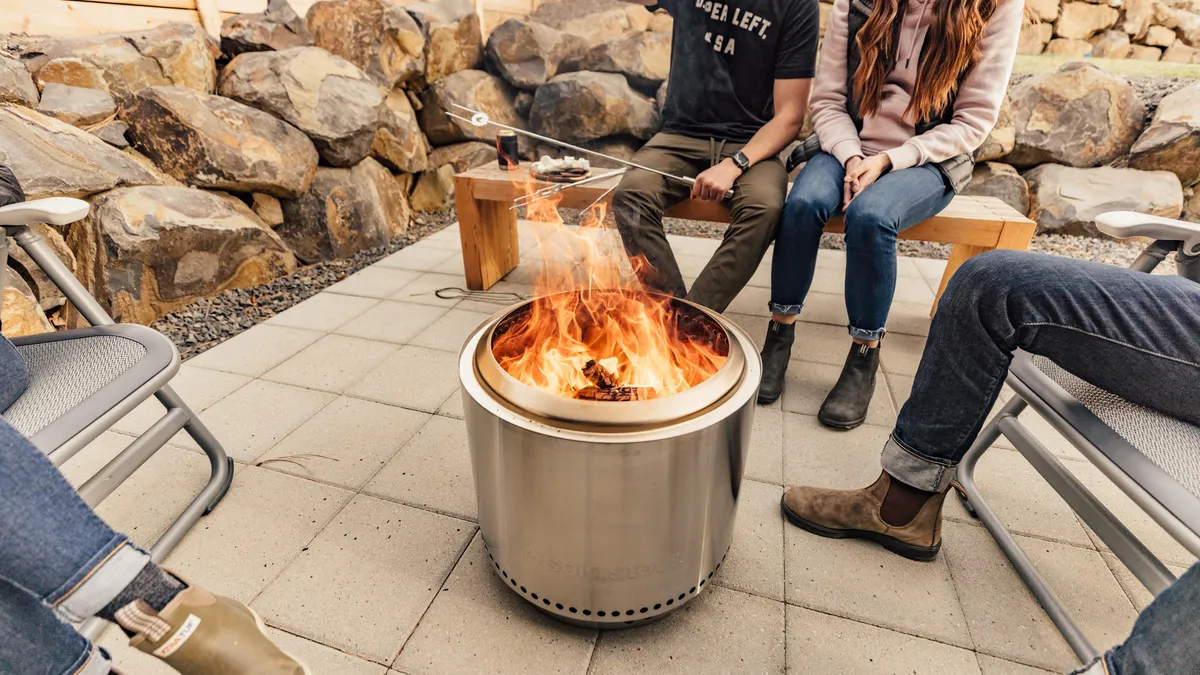Dive Brief:
- Solo Brands on Thursday reported fourth-quarter earnings and end-of-year revenues with new CEO Chris Metz outlining his priorities for the company. The company is planning to double down on its core businesses, Solo Stove and Chubbies, and is focused on reversing declining sales at the former, Metz said on a call with analysts.
- Solo Brands has also started a “full strategic review” of the business, though Metz said the company as a whole is not up for sale. Other priorities include restructuring marketing partnerships to better support revenue growth, hiring a new leadership team, building out a product innovation pipeline and returning the DTC channel to growth.
- Net sales were $165.3 million for the fourth quarter, representing a 16.2% decrease from the previous year, primarily due to weakness in the DTC channel. Full-year net sales were down 4.4% to $494.8 million compared to $517.6 million in 2022, according to a company press release.
Dive Insight:
In his first earnings call as CEO, Metz told analysts that he was eager to have Solo Brands return to its innovator roots. He said a lack of product innovation in the last 12 to 18 months has hurt revenues.
“I can assure you that we will bring this strength back to our business,” Metz said.
Metz told analysts the company is hiring a new leader of product development and developing a three- to five-year product roadmap. As Metz builds out a team to execute his priorities, his new hires include newly minted Chief Financial Officer Laura Coffey, a chief growth officer, a new brand marketing and consumer insights leader, and a new chief people officer to help Solo across all of its brands.
Metz also said ad spend was off. A marketing campaign with Snoop Dogg, which went viral in the fourth quarter, raised brand awareness of Solo Stove to a bigger audience but didn’t lead to the sales lift Solo expected. Metz said there was a disconnect with the ad, which wasn’t tied closely enough to Solo Stove’s products or website, and that the company needed to find a better way of partnering with the celebrity.
Solo Brands recently ended a marketing contract with an outside firm and hired a new marketing agency with deep DTC experience. The company’s DTC sales suffered last year, decreasing 20.8% in Q4 and 15.4% for the year, while wholesale grew 4.2% and 45.1% respectively. Still, the company plans to stick to a two-thirds DTC, one-third wholesale revenue split, according to Metz.
“First of all, we were born as a digitally native company and the majority of our sales have been, frankly, will continue to come from online efforts,” Metz said in response to an analyst’s question on what the optimal mix between direct and wholesale should be. “I don't believe that direct-to-consumer and retail are an either/or. We need to be able to grow in both channels because we believe both channels are growing. We need to do a better job in developing what I call a tailored go-to-market approach for each channel, and they also need to be harmonized so that we aren't competing against ourselves in both channels.”
The company swung into the red in the fourth quarter, reporting a net loss of $210.9 million compared to a net income of $19.5 million in the year-ago period. Net loss for the full year was $195.3 million. Revenue for the year ahead could increase by as much as 3%, with the company projecting a range of $490 million to $510 million.
Metz said he sees “enormous upside” and believes Solo’s businesses have not been fully built out.
“I see tremendous potential in our brands,” Metz said. “Everything I have seen can be fixed.”
















